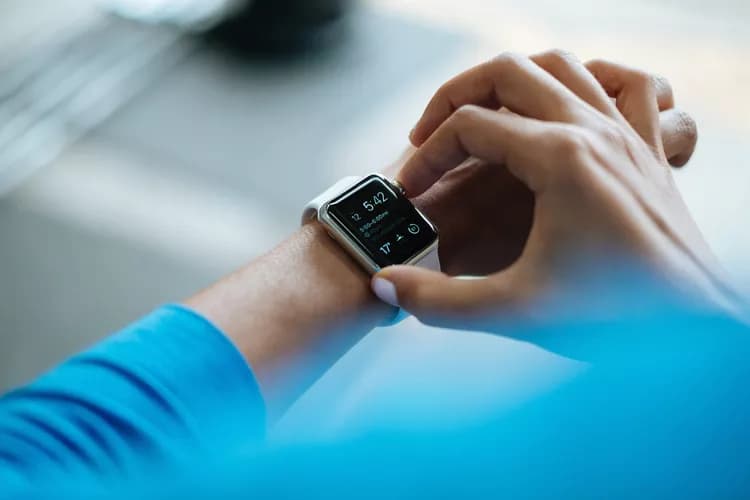
Using Your Smartwatch To Reduce Stress
The old adage "never let them see you sweat," doesn't apply in the electrical and computer engineering lab of Rose Faghih, assistant professor of electrical and computer engineering in the University of Houston Cullen College of Engineering. In fact, Faghih seeks sweat, the kind that beads on your upper lip when you're nervous -- skin conductance response (SCR) as the change in sweat activity is scientifically called. It is through that measure that Faghih is reporting the ability to monitor stress and even help lower it. To collect and study these physiological signals of stress, Faghih's research team has built a new closed-loop technology by placing two electrodes on smartwatch-type wearables. Once the signal for stress is detected, a reminder is sent through the smartwatch, for example, to listen to relaxing music to calm down. Thus, the loop is closed as the detected stress launches the subtle suggestion.
"This study is one of the very first steps toward the ultimate goal of monitoring brain responses using wearable devices and closing the loop to keep a person's stress state within a pleasant range," reports Faghih in the journal IEEE Xplore.
Electrodermal activity (i.e., the electrical conductivity of the skin) carries important information about the brain's cognitive stress. Faghih uses signal processing techniques to track the hidden stress state and design an appropriate control algorithm for regulating the stress state and closing the loop. The results of the research illustrate the efficiency of the proposed approach and validate its feasibility of being implemented in real life.
"To the best of our knowledge, this research is one of the very first to relate the cognitive stress state to the changes in SCR events and design the control mechanism to close the loop in a real-time simulation system," said UH doctoral student and lead study author Fekri Azgomi, who accomplished the task of closed-loop cognitive stress regulation in a simulation study based on experimental data.
Due to the increased ubiquity of wearable devices capable of measuring cognitive stress-related variables, the proposed architecture is an initial step toward treating cognitive disorders using non-invasive brain state decoding.
"The final results verify that the proposed architecture has great potential to be implemented in a wrist-worn wearable device and used in daily life," said Faghih.
Stress is a worldwide issue that can result in catastrophic health and financial complications. A recent Gallup poll found that more than one in three adults (35%) worldwide said they experienced stress during "a lot of the day yesterday."
Related Articles
Test Your Knowledge
Asked by users
Related Centers
Related Specialties
Related Physicians
Related Procedures
Related Resources
Join DoveHubs
and connect with fellow professionals

0 Comments
Please log in to post a comment.